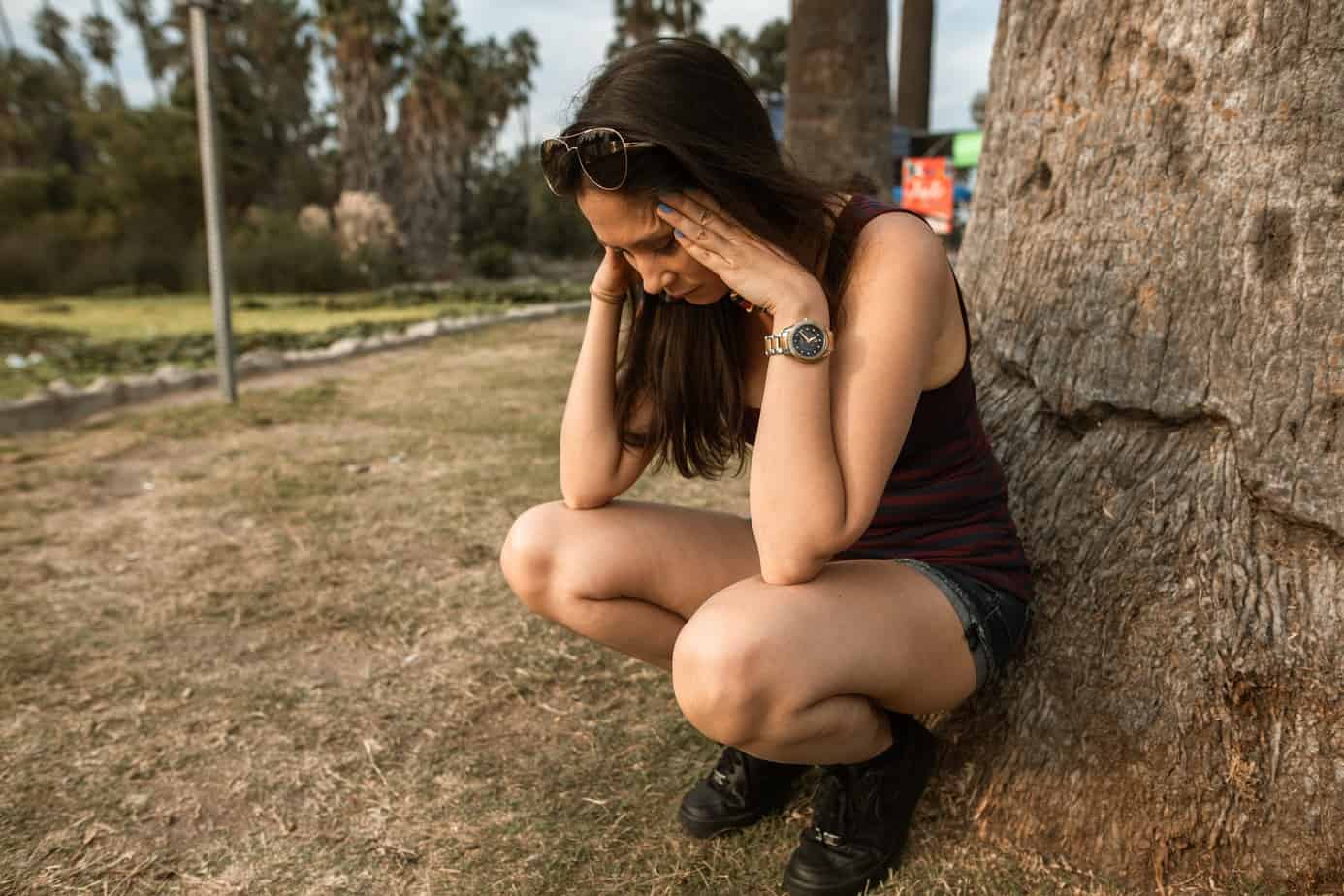Social anxiety is a mental health disorder characterized by a fear of social and performance situations, causing extreme anxiety and discomfort. Social anxiety is generally caused by a combination of genetic, biological, and environmental factors. It can often be comorbid with depression and eating disorders. Anxiety disorders are the most common mental health disorders in the U.S. Social anxiety is a more specific form of anxiety disorder and is usually first noticed in early adolescence and tends to peak during late adolescence and early adulthood.
Social anxiety is the fear of being evaluated and negatively judged by others in social or performance situations. Someone with social anxiety disorder may feel intensely uncomfortable around people and worry excessively about embarrassing themselves. They often feel very self-conscious and worried that others are constantly judging them. People with social anxiety disorder often have irrational thoughts like “I can’t do anything right” or “I am boring or stupid” or “I am not good enough.” These thoughts may make them reluctant to pursue goals or to engage in activities with other people for fear of being ridiculed, humiliated, or rejected. Social anxiety can significantly interfere with the person’s normal routine and ability to function in the workplace, school, or other social settings. Social anxiety disorder affects about 15 million adults in the U.S., or about 7% of the U.S. population, per the National Institute of Mental Health.
What Are the Symptoms of Social Anxiety?
Social anxiety symptoms will vary from person to person but many are similar. The person will try to avoid the situation, and if they can’t, they will experience extreme anxiety, panic attacks, sweating, nausea, palpitations, trembling, and more. Some people experience other physical symptoms like gastrointestinal upset, vomiting, feeling faint, or feeling detached from oneself. They may also have a hard time controlling the physical symptoms of their anxiety because the symptoms are so extreme.
These symptoms start to condition the person to avoid these situations even more since those situations are paired with discomfort. It also creates a fear of people noticing that they are experiencing symptoms. So the social anxiety gets worse because they are afraid of the embarrassment from vomiting, fainting, or having a panic attack in a public space.
Overall, it creates feelings of fight-or-flight because the person’s body is overreacting to a situation which shouldn’t create so much distress. The body and mind think it’s in danger and produces stress hormones like adrenaline and cortisol which leads to many of these symptoms.
Tip on How to Overcome Social Anxiety?
Social anxiety can sometimes be treated similarly to a phobia, due to the stress and fear coming from specifically social scenarios. One popular type of treatment for phobias is called systematic desensitization. It involves slowly introducing aspects of what someone is afraid of until they learn to be relaxed around the stimuli. For example, if someone has a fear of spiders, they may start learning to think about spiders, then see pictures of spiders, and eventually move to being around a real spider.
This is an admittedly difficult method of treatment because it involves facing what you are afraid of. Excessive fear is generally irrational and can be unlearned once the subconscious discovers that. Hiding away in your house due to your social anxiety only makes your reaction worse when you are reintroduced to it. It’s like how the longer you go without exercise, the more sore you will be when you do.
This goes against your current feelings but you should seek out social environments where you feel safest and go from there. And learn breathing techniques such as the 4-7-8 breath or box breathing to use during the moment to help remain calm. Generally, those with social anxiety like to know there is an easy escape from a situation without being noticed. So maybe if you go to an event, start by sitting in the back corner near a door so that you know that if you start to feel anxious, you can easily leave. Again, I know it sounds really hard, but the best thing is to strive to do things that you would do if you didn’t have social anxiety, until your body and mind adjust and realize those situations are not as dangerous as previously thought.
You will find that the more you practice social situations successfully, the less anxiety they will cause.
Depression and Social Anxiety
Social anxiety can also lead to depression. Comorbidity refers to the presence of one mental disorder with another. And depression is often comorbid with social anxiety due to the isolation that generally occurs from the avoidance of social encounters. Isolation has been shown to lead to depression and even increase the risk of death from all causes. Depression can also come from thinking that you can’t enjoy your life like others do because of your anxiety.
Practicing systematic desensitization as previously mentioned will help reduce your chances of your social anxiety leading to depression. Researchers from the Massachusetts General Hospital found that that social connection is what will most protect you from depression. So try and treat your social anxiety before it leads to depression which will make the situation even more difficult.
Conclusion
Social anxiety is something that affects many people. It can be hard to find your place in the world when you are afraid to be around people. The good news is that with a few helpful tips, you can learn to overcome your anxiety. We hope this article has helped you find at least one new tip that will help you overcome your social anxiety. And remember, it is always best to seek out advice from medical professionals when dealing with anxiety or depression. At times, counseling and/or medication could be beneficial. Good luck in your journey to total wellness!
Recent Posts
In the pursuit of professional success, the modern working professional often finds solace in a cup of coffee or energy drink. Caffeine, the world's most widely consumed psychoactive substance, has...
Strategies for Sales Professionals to Reduce Back Pain and Injuries
In the fast-paced world of sales, professionals often find themselves navigating through long hours, client meetings, and constant travel. Amidst the pursuit of closing deals and meeting targets, the...

